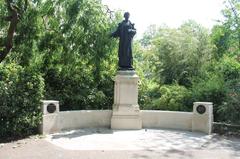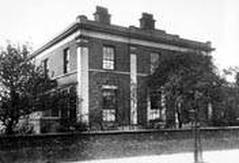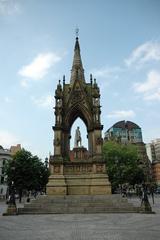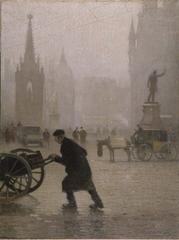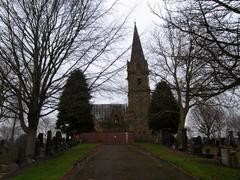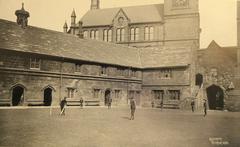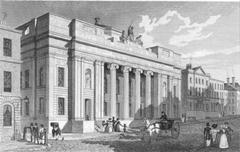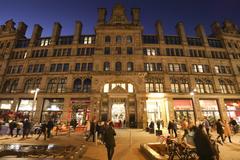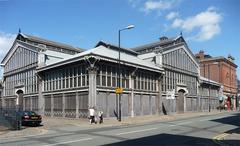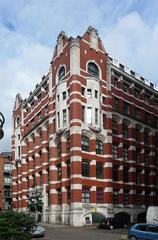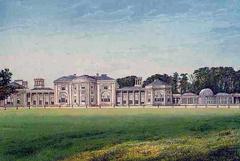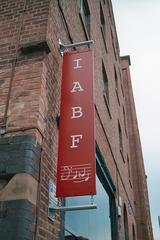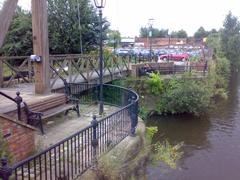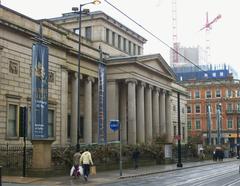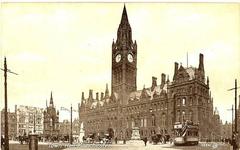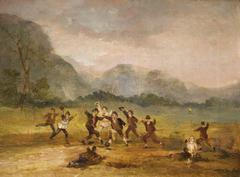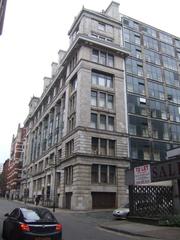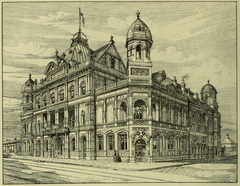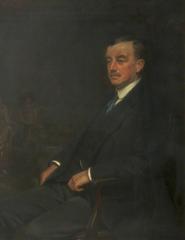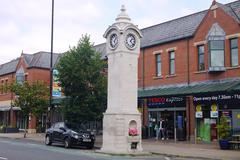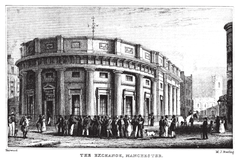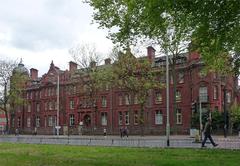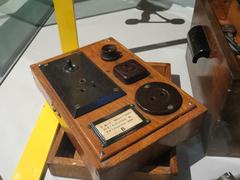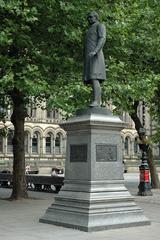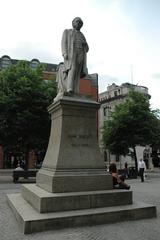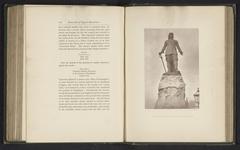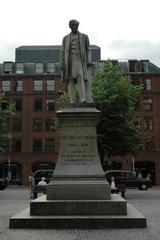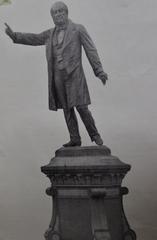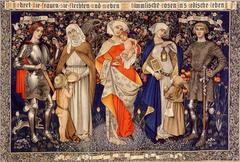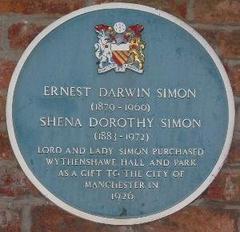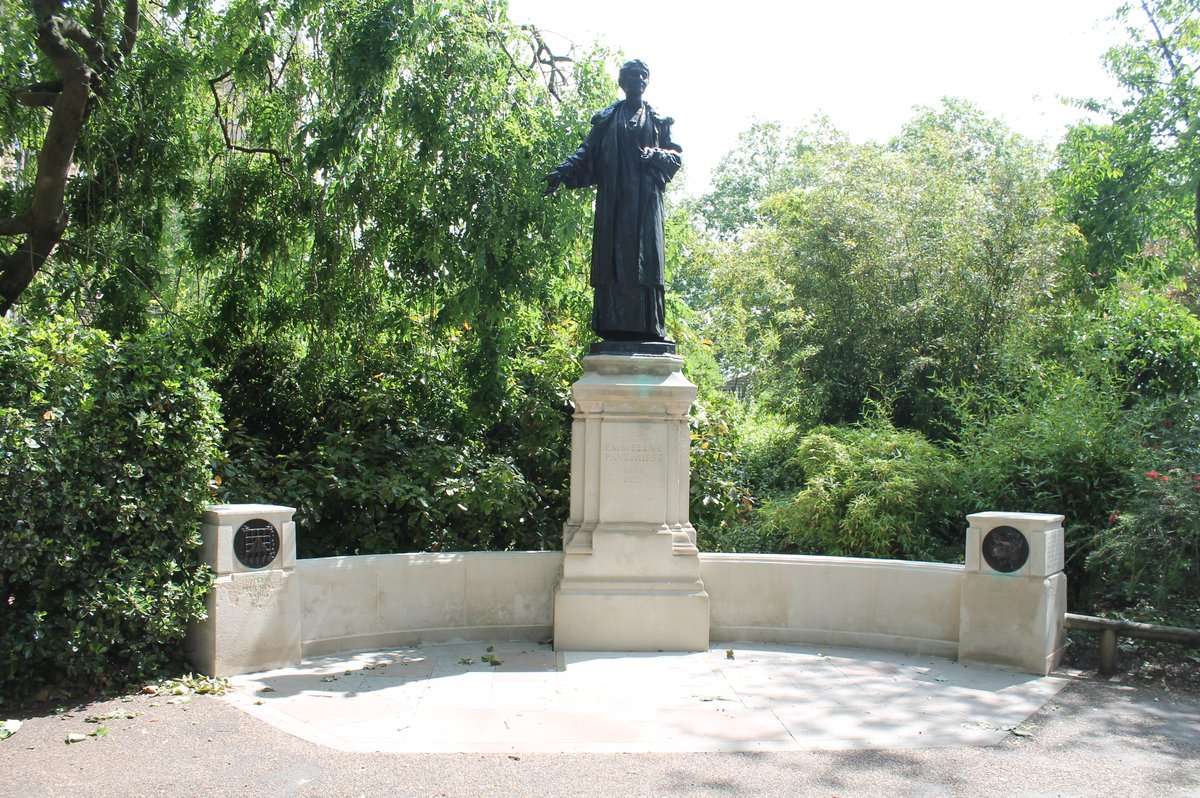
Statue of Emmeline Pankhurst, Manchester: Visiting Hours, Tickets, and Historical Significance
Date: 14/06/2025
Introduction
The Emmeline Pankhurst statue in Manchester stands as an inspiring tribute to one of the UK’s foremost champions of women’s suffrage. Located in the heart of St Peter’s Square, this dynamic monument honors Pankhurst’s enduring legacy and the city’s pivotal role in the struggle for women’s rights. This guide offers a thorough overview of the statue’s historical context, artistic features, practical visitor information, and its broader societal impact.
Table of Contents
- Introduction
- Historical Context and Campaign Origins
- Emmeline Pankhurst: Life and Impact
- Statue Design and Symbolism
- Visiting Information: Hours, Tickets, and Accessibility
- Guided Tours and Themed Walks
- Nearby Attractions and Suggested Itineraries
- Community Engagement and Unveiling
- Ongoing Legacy and Educational Programs
- Frequently Asked Questions (FAQ)
- Practical Tips for Visitors
- Conclusion
- Reliable Sources and Further Reading
Historical Context and Campaign Origins
Before the unveiling of the Emmeline Pankhurst statue in December 2018, Manchester had only one statue of a woman—Queen Victoria—among a multitude of male figures in public spaces (WoManchester Statue Project). To address this imbalance, the WoManchester Statue Project was launched in 2014 by Councillor Andrew Simcock, inspired by the need to commemorate the city’s remarkable women (Atlas Obscura).
A public vote chose Emmeline Pankhurst, a Manchester native, as the subject for the new statue. Funding was raised through government grants, private sponsorships, creative community fundraising (such as a 1,059-mile sponsored bike ride), and the sale of limited-edition bronze maquettes (Manchester Evening News, WoManchester Statue Project).
Emmeline Pankhurst: Life and Impact
Born in Moss Side, Manchester, in 1858, Emmeline Pankhurst emerged as a formidable leader in the fight for women’s suffrage. In 1903, she founded the Women’s Social and Political Union (WSPU), which adopted the motto “Deeds not words” to underscore their militant activism (Art UK). The WSPU’s efforts, often met with imprisonment and hardship, were crucial to the eventual passing of the Representation of the People Act 1918, granting voting rights to women over 30 (Art UK).
Pankhurst’s activism continues to inspire movements for equality, democracy, and social justice both in Manchester and beyond.
Statue Design and Symbolism
Hazel Reeves won a public competition to design the statue, with her proposal selected by over 5,850 public votes (WoManchester Statue Project). The sculpture, titled “Rise Up, Women,” depicts Pankhurst standing on a kitchen chair, arms outstretched in mid-speech—a posture reflecting her powerful public oratory and grassroots leadership (Atlas Obscura).
The statue faces the historic Free Trade Hall, connecting it to the suffragette movement’s origins in Manchester. Surrounding the statue is a Portland stone “meeting circle,” inscribed with “Rise Up, Women,” inviting visitors to gather, reflect, and participate in ongoing dialogue (Manchester Histories, Art UK).
Visiting Information: Hours, Tickets, and Accessibility
- Location: St Peter’s Square, Manchester, M2 3DE
- Visiting Hours: Open 24 hours a day, 7 days a week; no admission fee or tickets required.
- Accessibility: The site features step-free access, tactile paving, and is adjacent to the St Peter’s Square Metrolink tram stop. The square is wheelchair and stroller friendly, with benches and accessible toilets available in the nearby Manchester Central Library (Spotted by Locals).
- Best Visiting Times: For photography, early mornings or late afternoons provide optimal lighting and fewer crowds. Weekdays are generally quieter than weekends (Manchester’s Finest).
- Safety: St Peter’s Square is well-lit and monitored, making it safe at all hours. Standard urban precautions are advised during busy events.
Guided Tours and Themed Walks
For a deeper exploration of Manchester’s suffragette heritage, consider these options:
- New Manchester Walks: Offers regular “Emmeline Pankhurst Memorial Tours” covering the statue and other historic sites (New Manchester Walks).
- Emmeline Pankhurst Trail: A self-guided 3.5 km route linking the statue with the People’s History Museum and the Pankhurst Centre (Manchester Cotton).
Advance booking is recommended for guided tours, especially during peak times and commemorative events.
Nearby Attractions and Suggested Itineraries
St Peter’s Square is a gateway to several key Manchester historical sites:
- Manchester Central Library: Adjacent to the statue, offering exhibitions and public reading spaces.
- Manchester Art Gallery: A short walk away, housing significant art collections.
- The Pankhurst Centre: Located at 62 Nelson Street, about 20 minutes on foot; this museum occupies Pankhurst’s former home and the birthplace of the WSPU (Manchester Evening News).
- People’s History Museum: Approximately 15 minutes on foot, focusing on the history of democracy and social change.
A recommended itinerary: Start at the People’s History Museum, continue to St Peter’s Square for the statue, and finish at the Pankhurst Centre for an immersive journey through Manchester’s radical history.
Community Engagement and Unveiling
The statue’s creation was marked by extensive community involvement, from public voting on the subject and sculptor to grassroots fundraising and advocacy (Manchester Evening News). The unveiling on December 14, 2018—100 years after the first UK general election in which women could vote—was attended by over 60,000 people, featuring processions, performances, and speeches (Atlas Obscura).
Ongoing Legacy and Educational Programs
The statue serves as a focal point for annual events such as International Women’s Day (March 8), the anniversary of the 1918 General Election (December 14), and educational tours (GOV.UK). Supported by government funding, related programs include public speaking and leadership training for women and girls (GOV.UK).
The nearby Pankhurst Centre continues Emmeline’s legacy as a museum and women’s resource hub, offering exhibitions, workshops, and outreach programs (I Love Manchester).
Frequently Asked Questions (FAQ)
Q: Are tickets required to visit the Emmeline Pankhurst statue?
A: No, the statue is a public monument accessible 24/7 and free to visit.
Q: Is the site accessible for visitors with disabilities?
A: Yes, St Peter’s Square offers step-free access and is well-served by public transport.
Q: Are guided tours available?
A: Yes, several local organizations offer guided and self-guided tours featuring the statue.
Q: What nearby historical sites are recommended?
A: The Pankhurst Centre, People’s History Museum, Manchester Central Library, and Manchester Art Gallery.
Q: Are there special events at the statue?
A: Yes, annual commemorations such as International Women’s Day and the anniversary of the 1918 election often draw crowds and feature special programming.
Practical Tips for Visitors
- No Admission Fee: The statue is free to visit at any time.
- Weather Preparedness: Manchester weather is unpredictable; bring an umbrella or raincoat.
- Public Transport: Use the Metrolink for easy access; St Peter’s Square stop is nearby.
- Refreshments: Numerous cafes and restaurants are in the area.
- Souvenirs: Related books and memorabilia are available at the Central Library and local museums.
- Etiquette: Please respect the monument and refrain from climbing on the statue. The Meeting Circle is available for seating and reflection.
Conclusion
The Emmeline Pankhurst statue is not just a monument—it is a living symbol of Manchester’s progressive spirit, the enduring fight for women’s rights, and the power of civic engagement. Its central location, accessibility, and integration into Manchester’s rich network of historical sites make it an essential destination for anyone interested in the history of social justice and democratic reform. Whether you visit independently or join a guided tour, the statue offers inspiration and a tangible connection to a pivotal chapter in British history.
To enhance your visit and keep up with related events and content, download the Audiala app and explore more guides on Manchester’s historical heritage.
Reliable Sources and Further Reading
- Emmeline Pankhurst statue in St Peter’s Square, Manchester (2018), Manchester Evening News
- Hazel Reeves Sculpture of Emmeline Pankhurst, Art UK
- WoManchester Statue Project
- Rise Up, Women: Emmeline Pankhurst Statue, Atlas Obscura
- Emmeline Pankhurst Statue Unveiling (2018), GOV.UK
- The Pankhurst Trust: History, Empowerment & Women’s Rights, I Love Manchester
- Emmeline Pankhurst Statue Guide, Confidential Guides
- Emmeline Pankhurst Statue Visitor Information, Manchester’s Finest
- Emmeline Pankhurst Statue Details and Tours, New Manchester Walks
